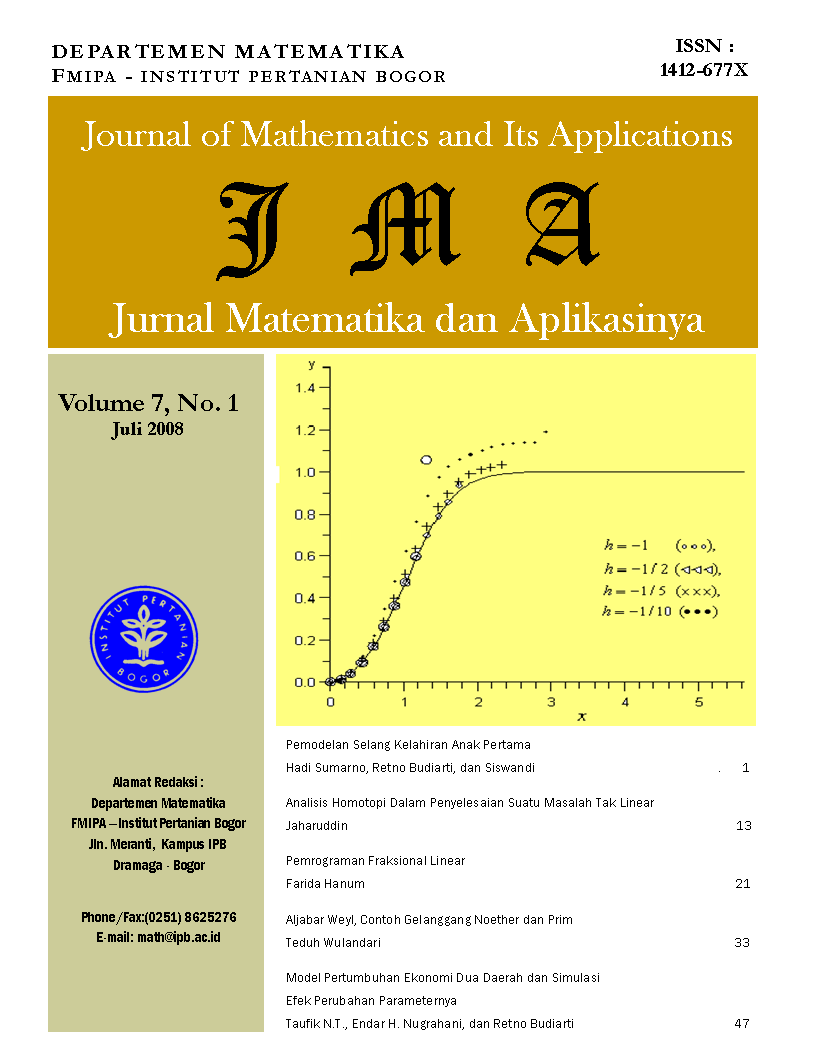MODEL PERTUMBUHAN EKONOMI DUA DAERAH DAN SIMULASI EFEK PERUBAHAN PARAMETERNY
Abstract
The traditional growth theory usually considers only the accumulation of conventional inputs of labor and capital as the primary variables responsible for the growth. It has been proven to be insufficient for explaining the complexity of modern economic growth. This thesis aims to study a two-region economic growth model proposed by Zhang (2005). This model explains the dynamics of economic system based on capital and knowledge accumulation. It also considers relationships between regional growth and regional trade patterns. Each region's production is similar to the standard one-sector growth model. Knowledge accumulation is assumed to be accomplished through learning by doing. Unfortunately, in obtaining the equilibrium solution of the model Zhang made some mistakes. Therefore, this thesis offers some corrections. The analysis done in this thesis includes obtaining equilibrium of the economic system and its feasibility conditions. Some results of simulation study show that knowledge improvement is more effective to increase equilibrium value of economic growth compared to improvement in investment or amenity level.Downloads
Published
2008-07-01
Section
Articles


